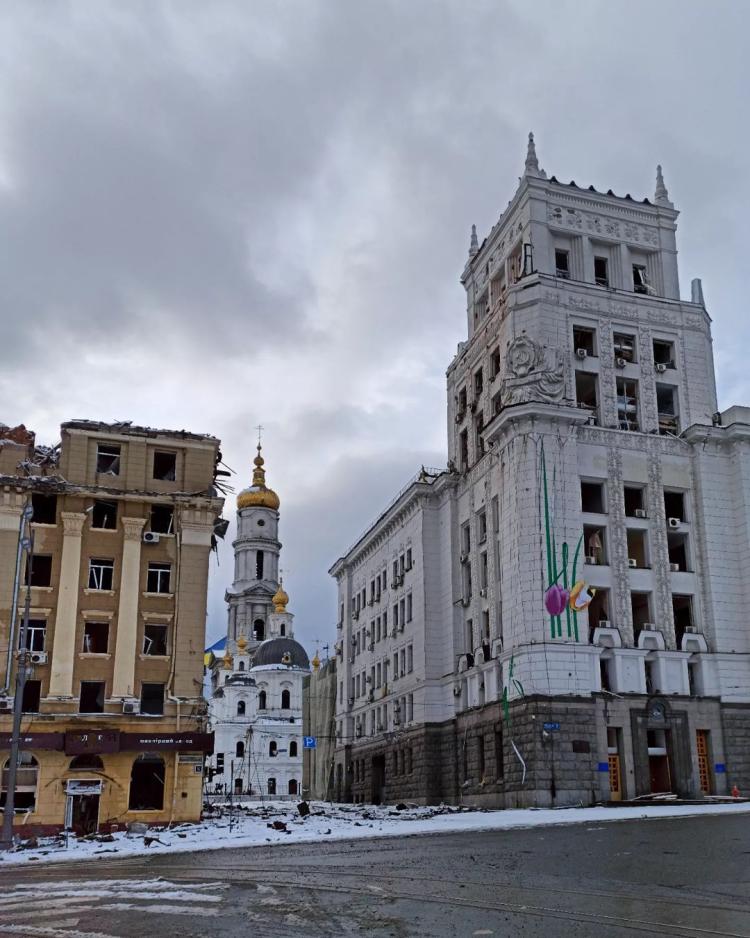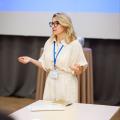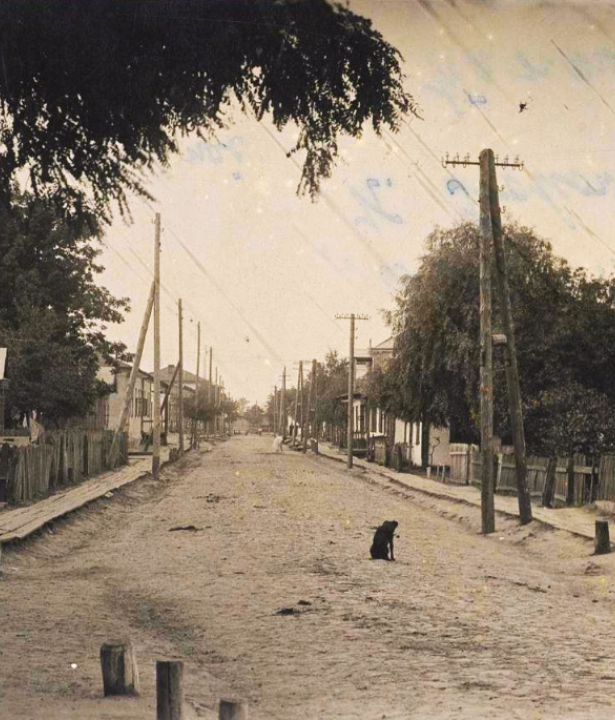What was the first day of the war like in Kharkiv? How has the city changed as a result of the devastating attack on Ukraine? How do people experience the war? Kharkiv residents were asked about this in the first months after February 24, 2022.
Text
The thematic focus "A wounded city. Residents of Kharkiv talk about the attack on 'their' city” was developed over the past two years in close cooperation between the "Young Kharkiv" association, the Leibniz Institute for the History and Culture of Eastern Europe (GWZO), and the Herder Institute for Historical Research on East Central Europe - Institute of the Leibniz Association.
Shortly after the outbreak of the war, historian and oral history specialist Svitlana Telukha had to flee Kharkiv and made her way to Leipzig. Here she met Maren Röger, director of the GWZO, and accompanied her to one of her seminars to report on the first days of the war. Svitlana brought video material from Kharkiv to the seminar, interviews in which Kharkiv residents spoke about their experiences on the eve of the war, their immediate reaction to Russia's attack on their city, and how their everyday lives had been disrupted by the war. These interviews were so powerful that the idea was born to translate them into German and English and publish them via the Copernico transfer portal.
Dorothee Riese from the Leibniz Institute for the History and Culture of Eastern Europe (GWZO), Antje Johanning from the Herder Institute for Historical Research on East Central Europe and Svitlana Telukha, based at GWZO and fellow pf the Philipp Schwartz Initiative of the Alexander von Humboldt Foundation, were responsible for editing this new thematic focus section of the portal. They worked closely with Svitlana Telukha's colleagues in Kharkiv. The thematic focus reflects the NGO's desire to digitally archive and preserve the memory of their city and make it accessible to an international public, including specialists. In addition, the interviews offer insights into the thoughts and feelings of those affected immediately after the attack, and will continue to be of inestimable value as sources on the Russian attack on Ukraine well beyond the bounds of the city and its people.
The dossier centers around 11 interviews with Kharkiv residents who remained in the city during the first months of the war. All interviewees are asked the same set of key questions, making it possible to compare one individual’s experiences with another. There are two versions of each interview: a short summary, which gives a concentrated insight into the interviewees' narratives, and an unabridged version. Introductory texts by Young Kharkiv provide a frame for the reports, as does an article by Iryna Skyrda in which she explains how the city has changed, while Mikhail Ilchenko, an expert on urban history of Eastern Europa based at the GWZO, provides a profound insight into Kharkiv in the 1920s and 1930s and the connection between this period and the city's cultural memory.
One of the central concerns of Young Kharkiv is to preserve the memory of the city and its inhabitants, including sites of remembrance, in the face of the massive destruction caused by Russia's constant attacks. Therefore, the interviewees are also explicitly asked about places that hold special meaning for them. We have marked these locations on a map, which adds a further dimension to the information on offer and gives you the opportunity to find out more about these places of memory.
The thematic focus is entitled "A Wounded City". This is because the participants, the members of Young Kharkiv and the interviewees, as well as the editorial team, all feel the pain of seeing a city they share an intimate connection with be destroyed. At the same time, the interviews themselves are an attempt at, and an act of, resistance, and form part of a larger strategy of resilience. The strength of will to preserve shared memory and document the city’s destruction is evident in the historians' decision to set off with a video camera despite the threat of missile attacks. It can be seen in every interview and the interviewees’ struggle to bear witness to the war and to try and piece together some kind of optimistic narrative for themselves. And it is this will that unites all of us – Young Kharkiv, the authors and us as editors – to preserve and protect the memory of this impressive metropolis, which is so devastatingly close to Russia. The fact that the project can now be published is due to the diligent and persistent work of a large team. The idea to publish the interviews was the brainchild of Prof. Dr. Maren Röger, whose advice and support made the project possible in the first place. Thanks are also due to the members of Young Kharkiv, who persevered with their work on the ground, constantly sending new material from the city for inclusion in the project: Yevhenii Telukha, Yevhen Mikhnov, Anton and Iryna Skyrda. This project was only possible thanks to the tireless work of a team of student and research assistants, editors, and translators.
The interviews were translated into German and English by Ukrainian translators. Anastasiia Babak and Maryna Skuratovska translated into German, Anna Lysenko translated into English. Coady Buckley and William Connor were responsible for proofreading the English transcripts, while Elisabeth Haid-Lener and Michèle Kraft were primarily responsible for proofreading the German transcripts. Michèle Kraft also oversaw data management. Bogdan Mykytenko was able to be recruited for video editing.
The following people also provided valuable assistance in the project: Erwin Ebel, V. F., Sören Kühne, Daniel Sagradov, Leticia dos Santos, Matthias Solka, Stefan Trajkovic-Filipovic, Hilke Wagner, Simeon Waibel and Antonia Zerbe.
We would like to thank the Federal Government Commissioner for Culture and the Media for funding the project.






